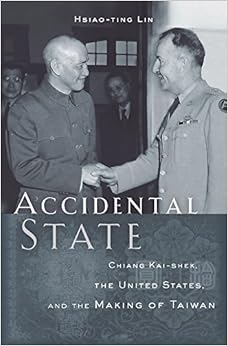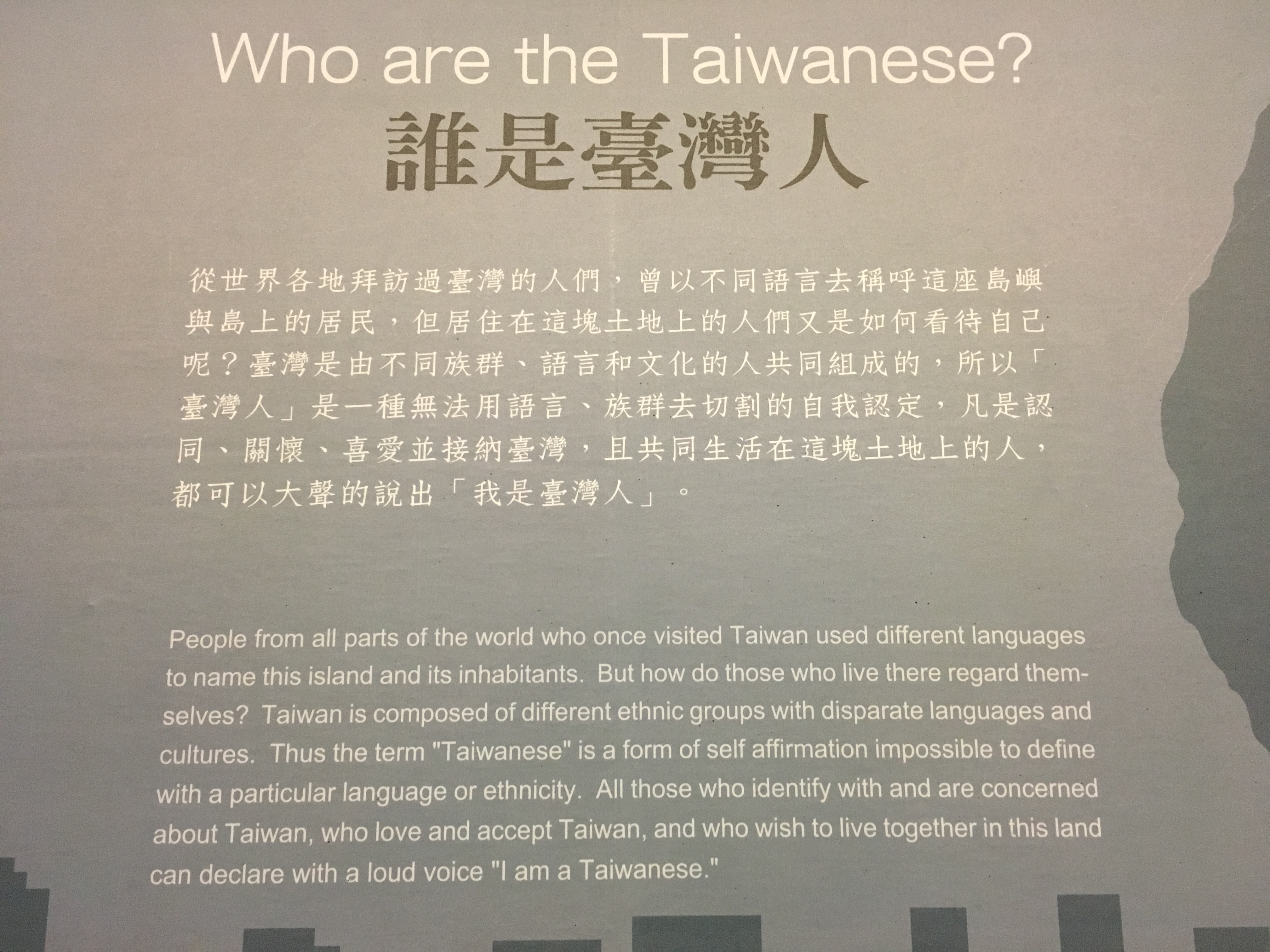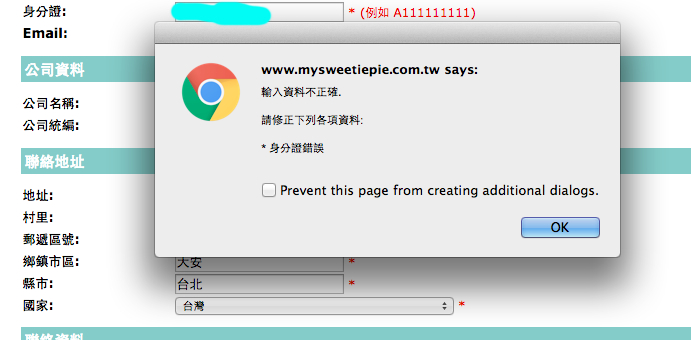
This photo was taken by Richard Saunders (of Taipei Day Trips, Taiwan 101, The Islands of Taiwan and Yangmingshan: The Guide fame) on a train from Hualien to Taitung. A few characters are a bit too blurry for me to give an exact translation, but it basically says that a female baby is as good as a male one - a son is as worthwhile as a daughter.
My first thought was not "why is this necessary in Taiwan in 2017?" - like medieval anti-gambling laws, it exists because it is necessary. It was more "we should be asking ourselves why this is necessary in Taiwan in 2017."
Michael Turton of course immediately sourced some stats: although women slightly outnumber men in Taiwan, there is a regional disparity that favors Taipei. If you remember your biology class lectures, you'll know that it's normal for slightly more male babies to be born than female ones, but for women to outnumber men in the general population, especially at older ages as the male children were historically more likely to die. If you remember your Social Studies classes, you'll also know that despite this, men do outnumber women in many countries (and very slightly on a global scale) as a result of gender-selective abortion and gendercide.
Living in the Taipei bubble, it's easy to think that the country as a whole has progressed beyond preferring boys to girls, or that the country as a whole is more liberal than it actually is (and yet I would argue that it still is the most liberal and progressive country in Asia and that tendency is baked into its national character - just with, y'know, some nuance).
Notably women outnumber men very slightly - as is natural - mostly along the western plains and in more developed areas, with men taking over the population majority in other areas. That is to say, there's a reason why this was posted on a train on the east coast and not on the Taipei or Kaohsiung MRT, or on a west coast train or the HSR.
Knowing this, I can say that even in my Taipei bubble, I've heard rumblings of continued preference for male babies. A student once told me she didn't really want to have children, but her in-laws did, so she would have one. She admitted she would prefer a girl just because she wanted to raise a daughter. We had a conversation about children being individuals not necessarily constrained by traditional notions of gender, and it went very well: I shared my experience growing up with a supportive family that never (okay, rarely) made me feel like I had to 'act like a girl', so I never felt ashamed of my natural personality traits that are more often associated with maleness (I don't agree with this association; I'm pointing out merely that it exists). However, she went on to say that regardless, she hoped she'd have a boy, because if she had a girl, her in-laws would expect her to have a second child and 'try for a boy'. (In the end she had a girl and declined to have another child. I don't know how her in-laws took it).
I also have more than one student whose parents 'tried for a boy', resulting in the once very typical family structure of a number of older female siblings with one very young boy (or just a large number of daughters before the parents gave up), and more than one who has a small number of adopted 'aunts' (daughters who as early as two generations ago were given to another family who didn't have many children to raise, being 'extra' and, yes, 'unwanted' in their birth family). It is still somewhat common to give your friends sticky rice with meat if you have a son, but (far less expensive and filling) cake if you have a girl, though many people I know are challenging that tradition.
My point is, we might think gender preference is no longer an issue, but this is still very much a thing and we need to ask ourselves not if it is necessary to have such posters, but why it is necessary, and what else we can do about the underlying problem.
One non-starter is 'outlawing' gender-selective abortion. I understand why that may be a problematic but necessary step in some places where misogyny is so entrenched that people will make their intentions to abort female fetuses clear (those same regions tend to have very high male:female sex ratios as well). In Taiwan, however, even if a woman were going for a sex-selective abortion - and to have such a high rate of males to females in the general population in some parts of the country, it must be happening to some degree - I cannot imagine that she would admit it. Taiwan allows abortion but has somewhat restrictive laws surrounding it, although the data is either confusing or non-existent on how this actually works. I still haven't figured out to what extent the 'four criteria' matter or even if they still exist.
In any case, a gender-selective abortion is not allowed for in the outline of the law (confusingly) linked to above, but any woman in Taiwan seeking one would almost certainly come up with some other reason for terminating her pregnancy.
So, to 'stop' gender-selective abortions by refusing to give them in the first place puts doctors, and basically ethics, into a big fat quandary: they would have to deduce intent and then decide if their unproven conclusions about a woman's reasons for ending her pregnancy merited agreeing to perform the procedure or not.
I would love to live in a world where I didn't have to explain why this is a huge problem vis-a-vis women's rights, but I don't live in that world so here we go (sigh): when anyone, however well-meaning, tries to deduce a woman's intent rather than listen to what she is actually saying, especially given the blind spot we have to our own pre-conceived notions and worldviews, they are in essence saying that woman cannot be trusted to say what she means, and therefore certain assumptions must be made about her and subsequently acted on, and decisions must be made on her behalf for her own good - she cannot be trusted to make them herself because the assumer's conclusions trump the woman's actual words or actions. It reduces a woman to less-than-adult-human status, to the status of a childlike figure, with decisions about her and her future being made by parent-like figures.
As much as I am (obviously) against sex-selective abortion, in Taiwan this is not a solution.
I also understand why some doctors in some countries will not reveal the gender of a fetus to a family, but I do not fundamentally agree that withholding information from anyone - especially, in such a gender-unequal world, a woman - in order to keep them from making decisions about their bodies is a good idea (and yet, because the world is difficult but nuanced, I would not argue to stop that practice in, say, India or China right now despite disagreeing with it on the most basic level).
This, too, is not a solution that would work for Taiwan. Fortunately, this doesn't seem to be an issue here as far as I'm aware - please do correct me if I'm wrong.
Neither is it reasonable to target sex-selective abortions but provide no public service campaigns or funding to ensure that daughters who may have been 'unwanted' grow up in a loving, stable environment where their needs are met. If you prevent a woman who doesn't want a daughter from aborting that daughter, but then leave the new parents to their lives, that daughter may well grow up abused or neglected, or perhaps even abandoned.
In fact, I think this sign is just about right, and in fact the intent of it could be further extended. Every country, of course, has the potential to progress socially, but I have long felt that Taiwan is somewhat exceptional in this regard. People say change here is slow. I say it doesn't have to be, and isn't always - if it were, how is Taiwan the most forward-thinking country in Asia? How is it, 20 years after democratization, that the party of the former dictatorship is being peacefully held accountable for its crimes (despite the process of democratization itself being far less peaceful than many people believe)? How is it that Taiwan is the first country in Asia to have a female president who came to power on her own merits rather than through family ties - who has never had a father, brother or husband whose leadership paved the way for her?
Just as most Taiwanese either support or do not oppose marriage equality after only a few short years of the topic being in the public spotlight, and just as the KMT talking-points malaise hanging over Taiwanese society (that part of society made up of those who are not radical young activists and progressives) was wiped away in a few weeks in 2014 (though I am somewhat simplifying that narrative), I don't see Taiwan as a country bogged down by tradition it cannot escape: I see it as exceptionally able to hear a logical argument for equality and human rights, to understand the fundamental rightness of that argument and to subsequently adopt it in a short span of time.
Why are sons preferred over daughters in some areas? There are still gendered notions of who should be a breadwinner and who must be supported, who is a part of your family (your sons) and who will someday belong to another family (your daughters) and who carries on ancestral traditions and rites and the family name, and who cares for parents in their old age. Why, outside of a few industries (accounting comes to mind), do managers tend to be male and assistants female? Why in social groups do the leaders tend to be male and followers female?
It doesn't have to be this way, of course.
Therefore, it is quite possible to solve this problem through education, although it cannot be Taipei-centric. Discussion, public service campaigns and education can change this mindset into a more egalitarian one. Furthermore, it cannot be merely focused on child-bearing women: why might a woman choose a sex-selective abortion? There's a very good chance it is not because she personally would prefer a son. It's likely the result of the influence of her family, her in-laws, perhaps even her husband. Her decision was not made in a vacuum.
It's the older generation - the people who are the in-laws of the women currently having children, and who raised the male partners of those women - that we need to reach, so they stop pressuring their children to have boys rather than girls. It's also the men: how much less likely would it be for a woman who wants to have a baby to abort a female fetus if her 'traditional' husband weren't a part of the pressure for her to do so?
People might argue that a preference for male children is a cultural issue, and it's not right for foreigners - or for mostly Taipei-based social activists (though that too is changing) - to go to these more rural, traditional areas and try to essentially change the culture, or to force their ideologies onto people who do not necessarily agree and want to keep their traditional views. Such ideologues might argue that trying to push such people to change is akin to finding them 'inferior' or 'undeveloped' to begin with.
I'd say this is wrong: I see the appeal of the argument, but it doesn't hold up. Although I do not believe abortion is 'murder', a skewed male:female sex ratio does lead to societal problems that could be avoided, and the abuse, neglect or abandonment of unwanted daughters as a result of such views does have a human cost that may come not just in suffering, but also in lives. It is also important to abandon the forced dichotomy between 'tradition' and 'modernity'. The US had gender inequality written into its laws as late as the 1970s. That changed (though inequality did not disappear on a social level), and American culture is still American. Slavery and segregation ran deep in American culture until they didn't (though, again...) - and yet America remains. Taiwan has done an excellent job of retaining its traditional cultural elements while walking an essentially progressive and liberal path. To convince people that Taiwan is better off as a more gender-equal society will not make Taiwan any less Taiwanese.
Basically, we have to educate people not just through mandatory classes, but through activism and public service, in such a way that sends a clear message: supporting better human rights and equality for women, ending a preference for boys and ending gender-related ideas about what girls and boys can do and be in a family does not mean giving up one's culture. It is not an assault on values, it's a progression of human rights. I do think most people who remember Taiwan's struggle for democracy might find something to agree with in that.
In short, Taiwan, no longer focused simply on fighting for sovereignty from China, is in the process of figuring out what kind of country it wants to be. I think any reasonable person would agree that this means ending sex or gender preference on the part of parents. I'd like to extend that further and say it also includes a more egalitarian society where the forces that keep women from obtaining true equality are continually fought and eventually defeated - killing the root cause of the preference for male babies to begin with. It also includes adopting a rational method of doing so: not only by not solely focusing on women who are pregnant or seeking to be, but also on the people in their lives who might try to convince them that a boy is better than a girl. It means, of course, making feminism a human rights issue rather than a cultural values issue or a women's issue.



